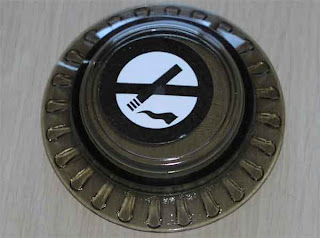
Back in the day, Rebecca Dickerson remembered, smoking was the thing to do.
“It was just cool,” she said.
But what started as something cool in the 1970s became an addiction that would not let go of her for 39 years.
“I got hooked,” she said. “I tried to stop many times, but went back.”
Dickerson became one of 8 million African-Americans in this country who smoke. Tobacco-related diseases kill more African-Americans each year than car crashes, AIDS, murders and drug and alcohol abuse combined, according to the U.S. Centers for Disease Control and Prevention.
For African-Americans, avoiding tobacco requires willpower against far more than nicotine, as a host of historical, cultural, geographical and economic factors come into play. As slaves working in tobacco fields, they smoked to ease their pain. As consumers, certain brands are marketed toward them.
An internal tobacco company memo made public via landmark litigation urged marketers to “take advantage of the relatively small and tightly knit” nature of the African-American community. Many older members smoke and hand down the habit to younger generations, who have difficulty rejecting their elders’ traditions.
“It has been in our history for a long time,” said Kara Endsley, program manager for the National African American Tobacco Prevention Network in Durham, N.C. “We survived the [civil rights struggles of the] 1960s, we got Obama in the White House. We need that same fortitude to fight tobacco … We are free from slavery, but still in bondage.”
She was the keynote speaker at a recent workshop at Edward Waters College that brought together health education experts seeking ways to curb smoking by African-Americans in Northeast Florida. EWC, a tobacco-free campus since 2008, received a grant from the Tobacco-Free Jacksonville Coalition to stage the event.
Helping smokers quit
The key to breaking the smoking habit is to provide affordable, easily accessible no-smoking programs at the community level, Endsley said.
That’s what helped Dickerson kick the habit.
She had many stops and starts. In early 2011, she woke up one morning and told herself the six cigarettes she had left would be her last.
“I decided I wouldn’t buy any more. I was going to enjoy those six,” she said with a chuckle.
Dickerson kicked the habit for two weeks on her own, used nicotine patches to help, then joined the free Quit Smoking Now program sponsored by the Northeast Florida Area Health Education Center.
Now 61, she has been smoke free for 14 months.
“Just being able to be with people in the same predicament I was in … Nobody judged me,” she said.
Another success story is Yvette Perry, 29, who started smoking when she was 18 or 19.
“Everybody was smoking,” she said.
She decided to quit cold turkey a year or so ago because of the cost of cigarettes — $6 a pack — and worries about the possible impacts on her health and appearance.
“One day, I said I didn’t want to smoke today,” she said. “If you have strong willpower to give something up, you can give it up.”
Her timing was critical. Shortly after she quit, she became pregnant.
Комментариев нет:
Отправить комментарий